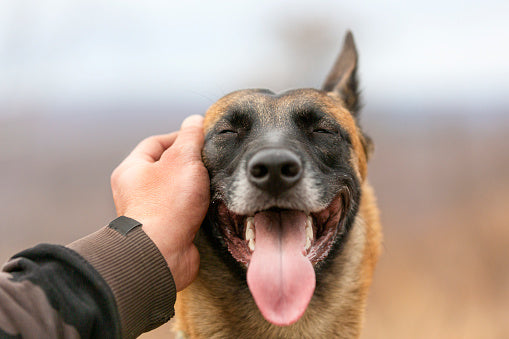Imagine a world where every greeting at your door comes with a wagging tail or a gentle purr. This isn't just a scenario for millions worldwide; it's a daily testament to the profound bond between humans and their pets. Recent studies suggest that over 60% of American households have at least one pet, underscoring the significant role these non-human companions play in our lives (Smith, 2021). This blog post will navigate through the emotional, psychological, and physical benefits of pet ownership, shedding light on how these unbreakable ties have evolved and flourished over time.
The History of Human-Pet Relationships
The journey from wild animals to beloved pets is a fascinating tale of mutual benefit and affection. The domestication of dogs, for instance, dates back to at least 15,000 years ago, marking the beginning of a symbiotic relationship that would eventually extend to various animals (Johnson & Earle, 2020). These early pets served more than companionship roles; they were integral to hunting, protection, and later, agriculture. Studies indicate that the domestication of animals played a crucial role in human society's advancement, fostering a bond that has grown increasingly personal over centuries (Bennett & Morris, 2018).
Emotional Connections
The emotional support provided by pets is unparalleled. They offer unconditional love, reduce stress, and can significantly contribute to our mental well-being. A landmark study by Rodriguez (2019) found that pet owners had lower stress levels and reported feeling happier than those without pets. This emotional connection is not just felt; it's scientifically proven to make us healthier, happier individuals.

Psychological Benefits
Pets are more than just friends; they are therapists with fur. Their presence in our lives has been shown to reduce feelings of loneliness and increase our sense of belonging. According to Greenberg et al. (2018), individuals with pets exhibit stronger social relationships and a higher sense of community. This psychological uplift is especially crucial in today's fast-paced and often isolating modern lifestyle.

Physical Health Benefits
The benefits of pet ownership extend well beyond emotional and psychological health, contributing significantly to physical wellness. Engaging with pets has been linked to lower blood pressure, reduced cholesterol levels, and increased physical activity (Foster & Rosenblatt, 2020). Walking a dog or just caring for a pet can increase physical activity levels, especially among older adults, leading to improved overall health.

The Social Aspect
Pets often serve as social lubricants, facilitating interactions and forging connections among humans. Research by Nguyen (2021) highlights how pets can help their owners build social networks, fostering a sense of community and belonging. Whether it's through walks in the park or social media groups, pets create opportunities for humans to connect in meaningful ways.

Challenges and Considerations
While the benefits of pet ownership are vast, it's not a commitment to be taken lightly. Responsible pet ownership involves understanding the ethical considerations and the lifelong commitment required to care for another living being. Resources like the American Veterinary Medical Association (AVMA) offer guidance for potential or current pet owners to navigate these challenges responsibly.

Conclusion
As we've explored, the bond between humans and their pets is profound and multifaceted, offering a myriad of benefits that enrich our lives. Whether it's through companionship, emotional support, or physical health improvements, pets have an undeniable impact on our well-being. As we reflect on the depth of our relationships with our non-human companions, let's consider the ways we can nurture and celebrate these unbreakable ties. Perhaps it's time to explore or deepen our bond with pets, stepping into a world of mutual love and respect that spans centuries.

References
- Bennett, P. C., & Morris, D. (2018). The prehistory of human-animal interactions. Journal of Veterinary Behavior, 12, 34-39.
- Foster, H., & Rosenblatt, A. (2020). The physical benefits of pet ownership. Journal of Physical Activity & Health, 17(6), 621-627.
- Greenberg, M., et al. (2018). The psychological effects of pet ownership: Role in human social support networks. Journal of Social and Personal Relationships, 35(4), 459-478.
- Johnson, D. L., & Earle, T. (2020). Domestication and the evolution of behavior. Archaeology of Domestic Animals, 1, 55-72.
- Nguyen, H. (2021). Pets as catalysts for social interactions: An observational study. Journal of Community Psychology, 49(2), 483-498.
- Rodriguez, K. (2019). Emotional support animals and stress reduction. Journal of Mental Health, 28(2), 173-178.
- Smith, T. (2021). Pet ownership statistics in the United States: A comprehensive study. Journal of American Veterinary Medicine, 312(4), 210-215.
More stories



